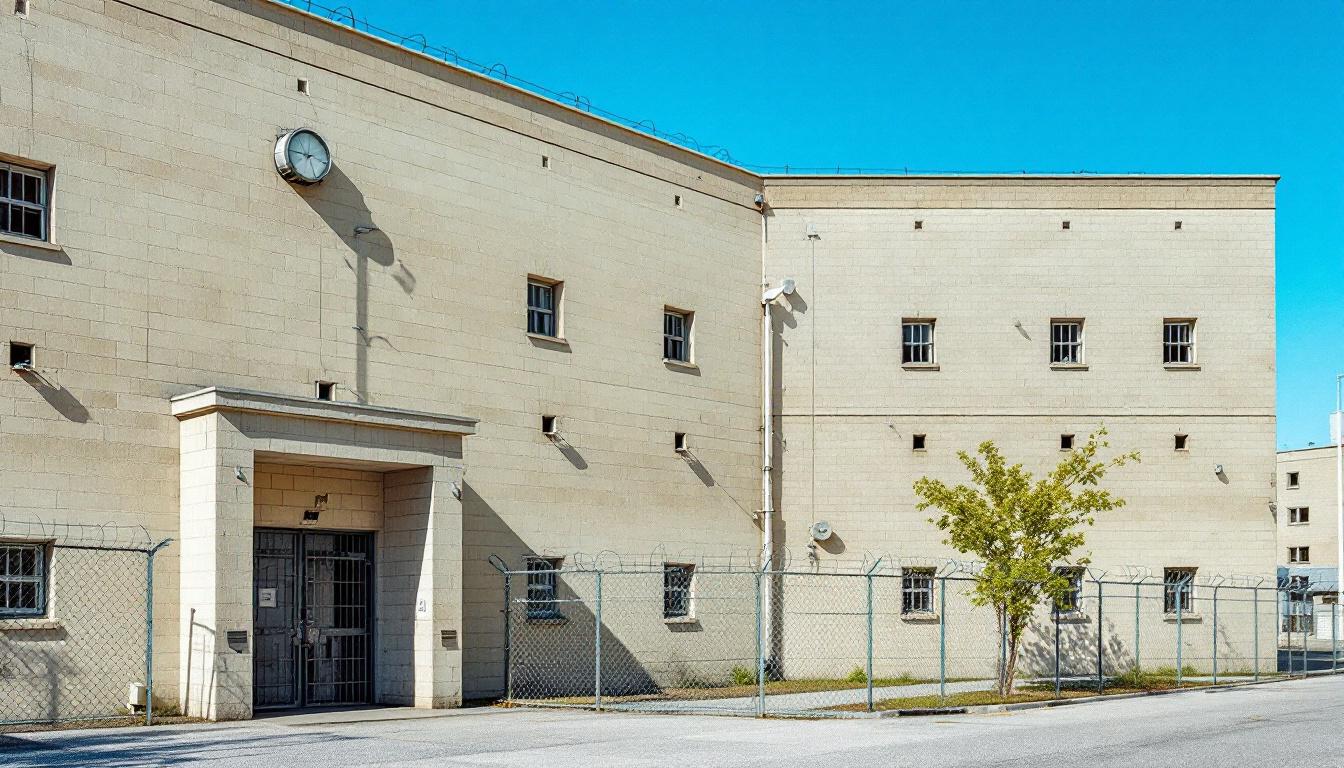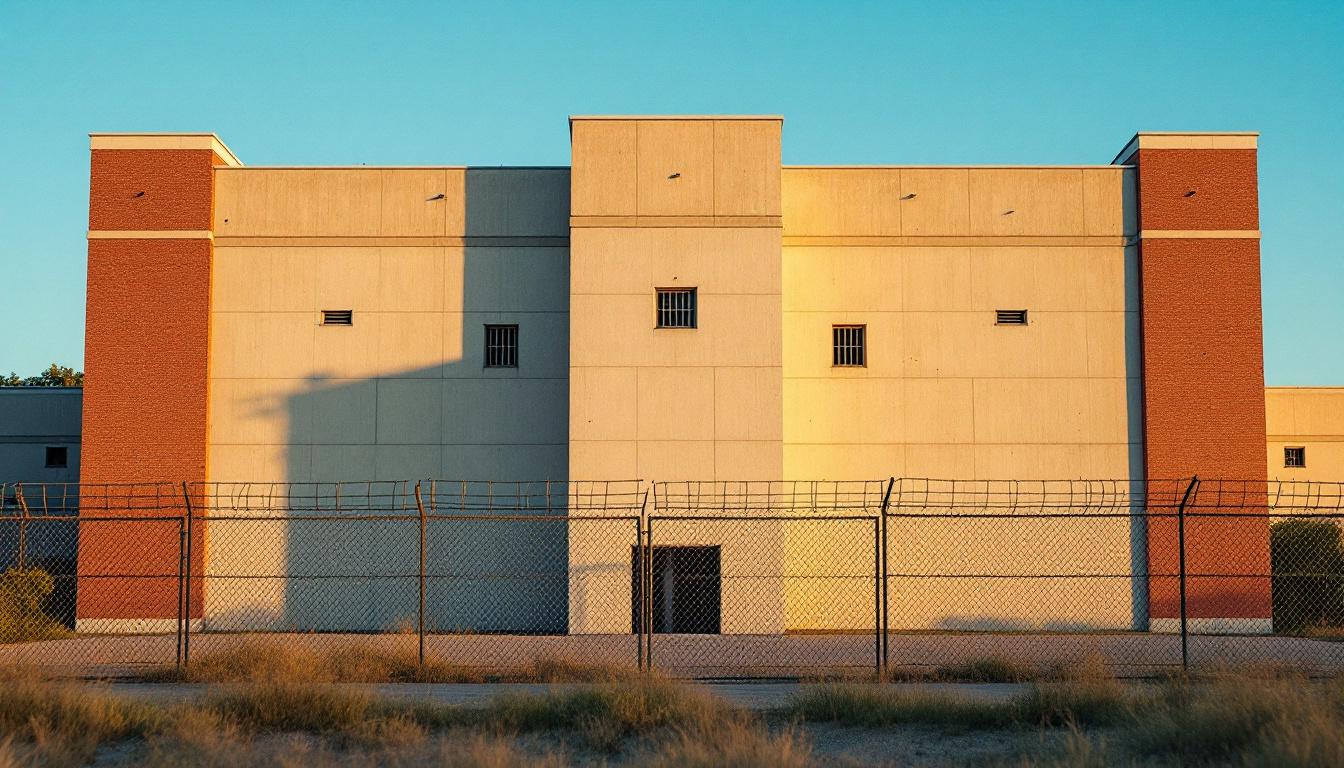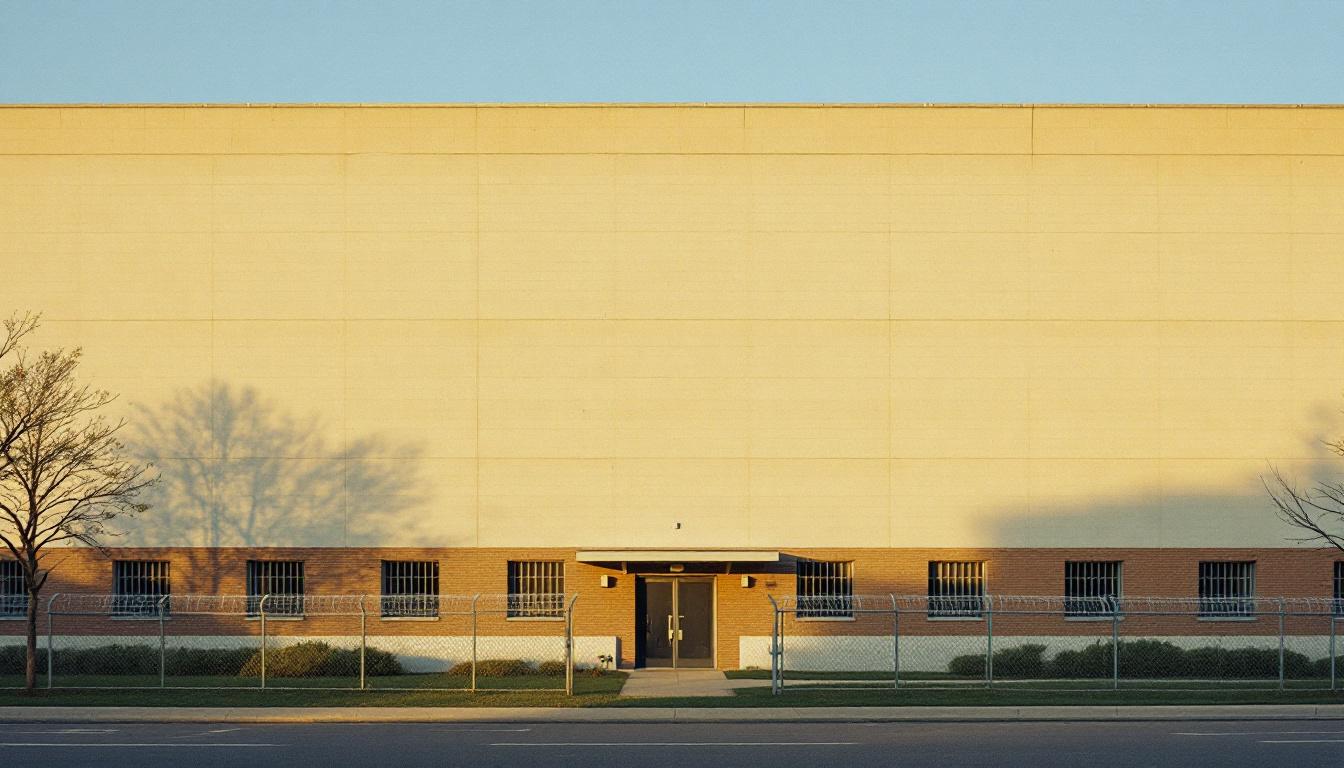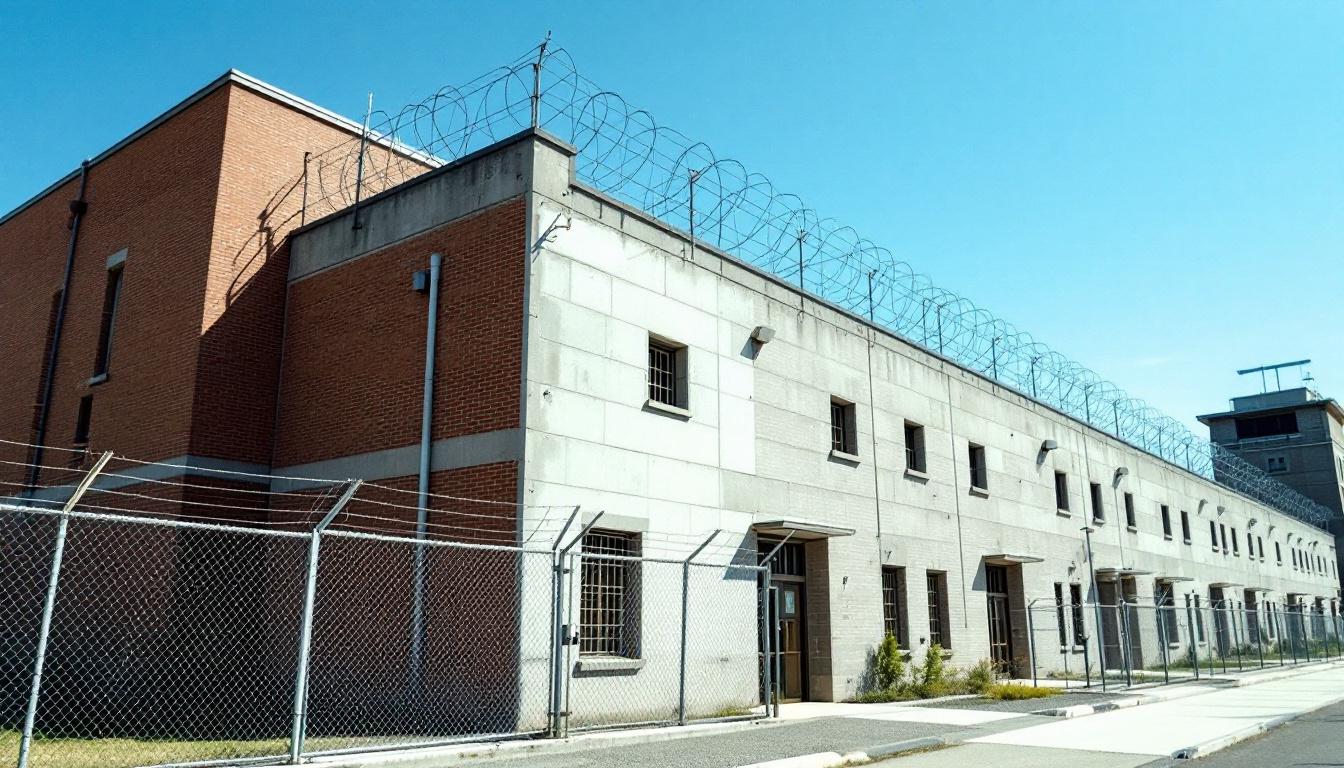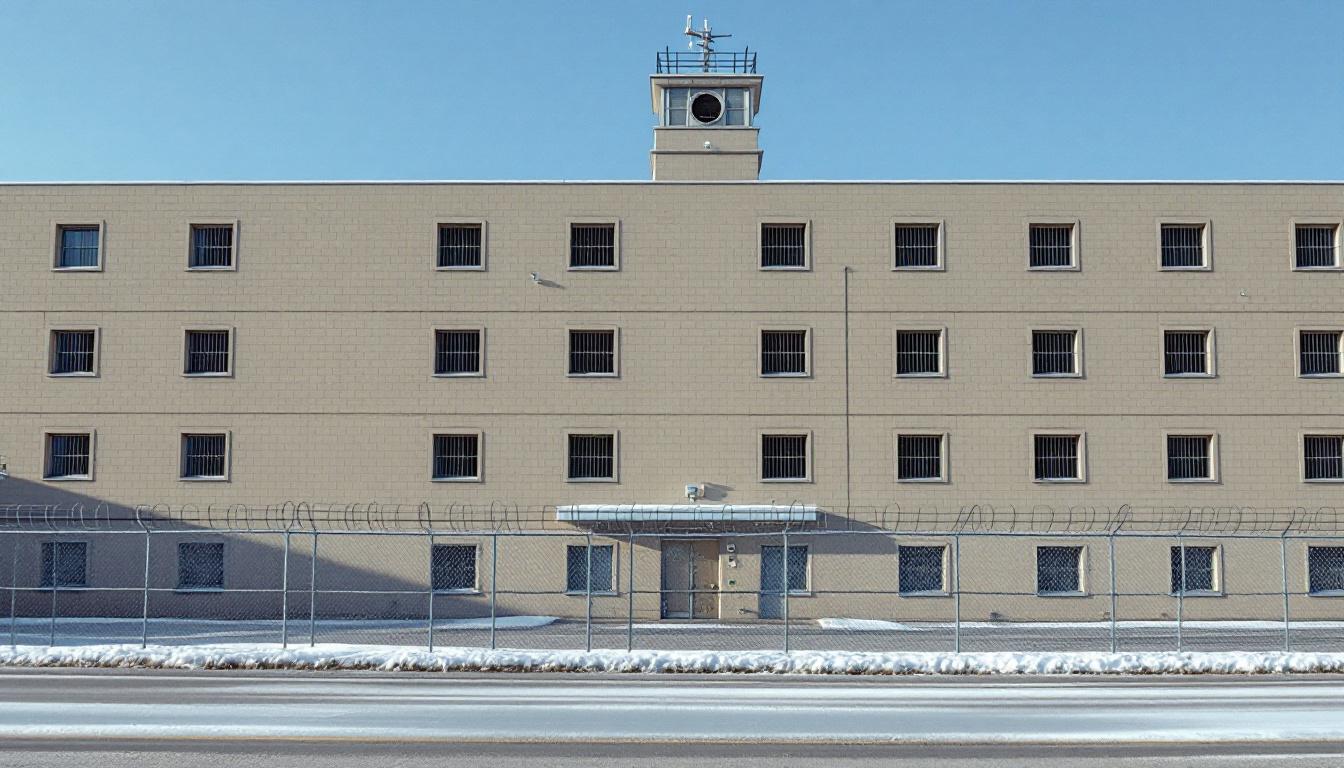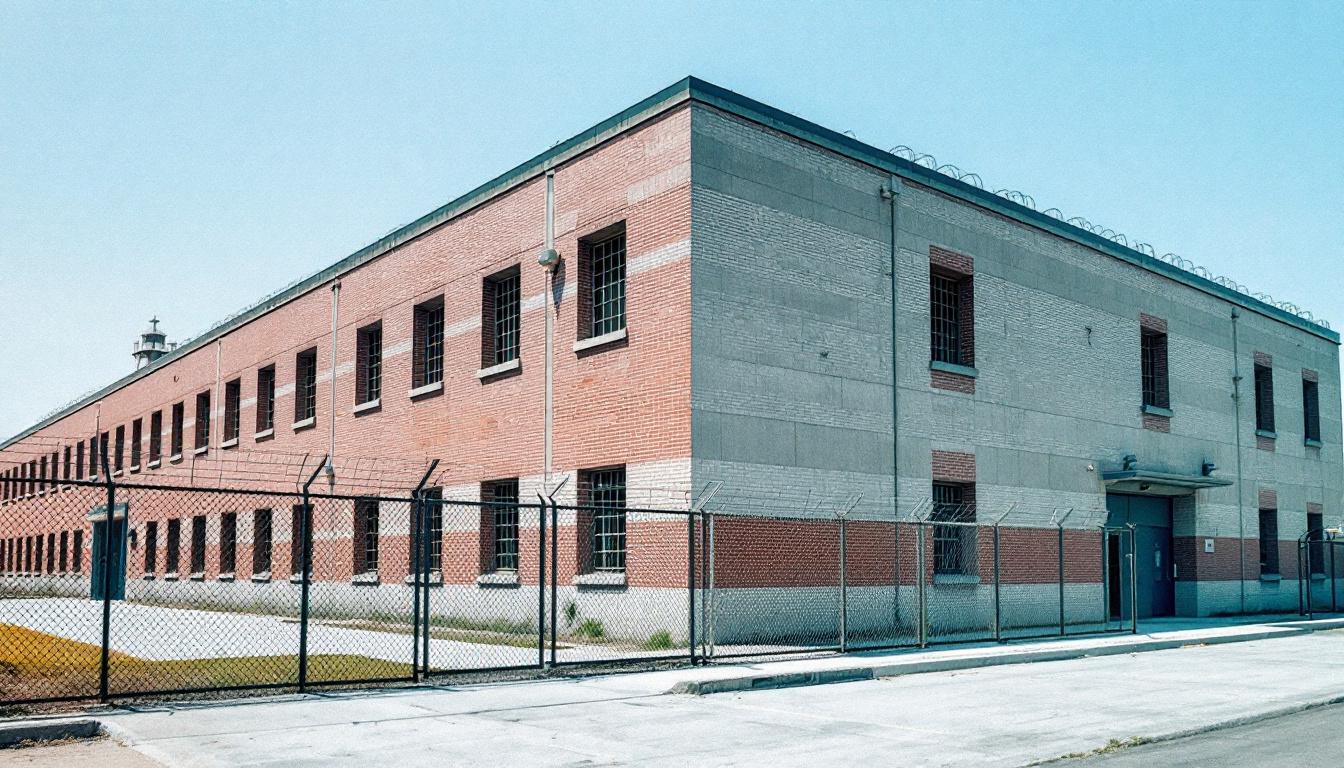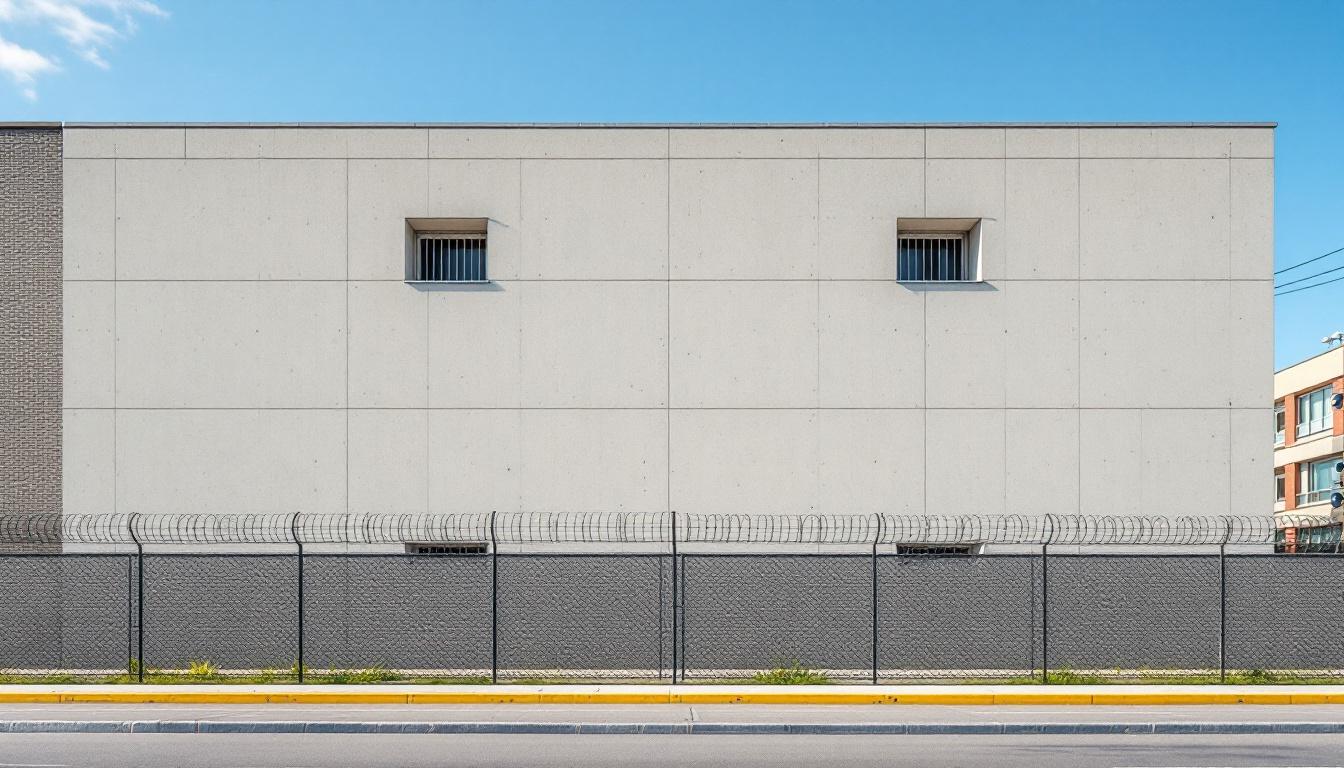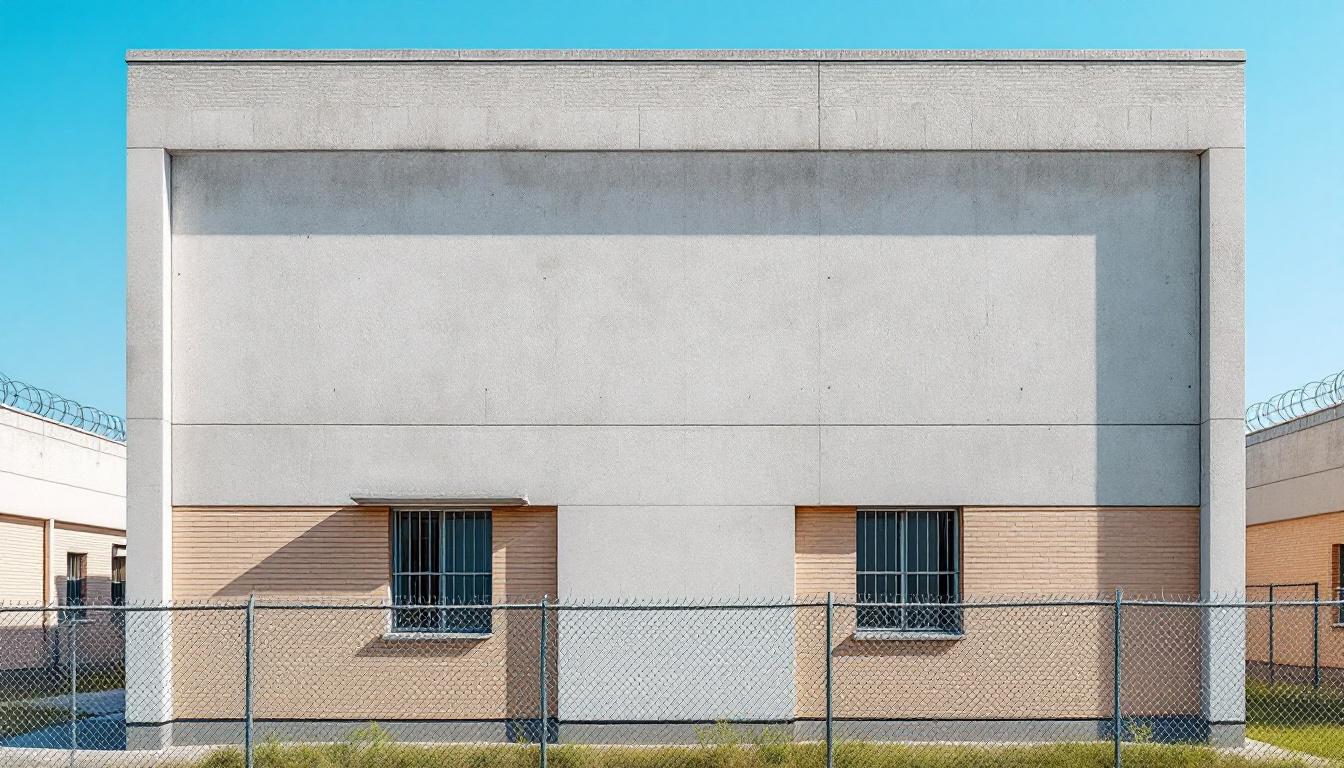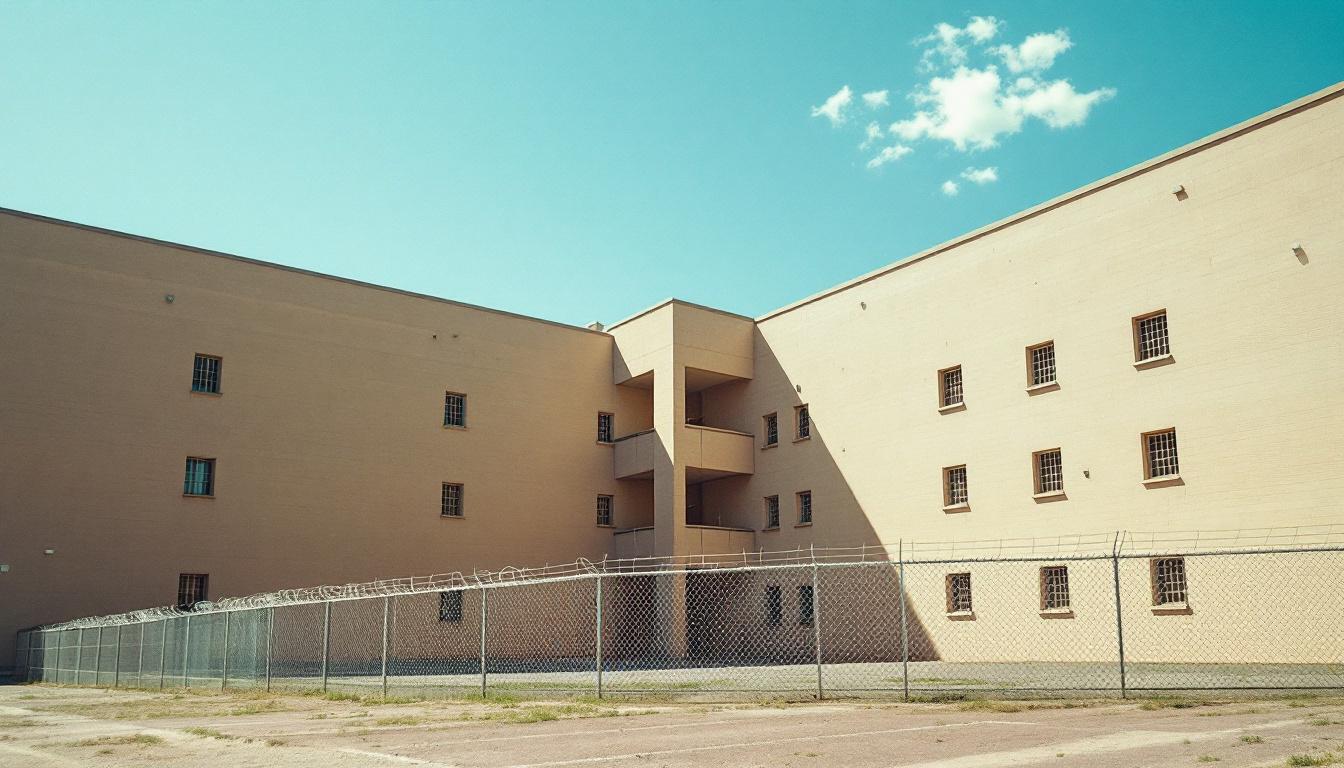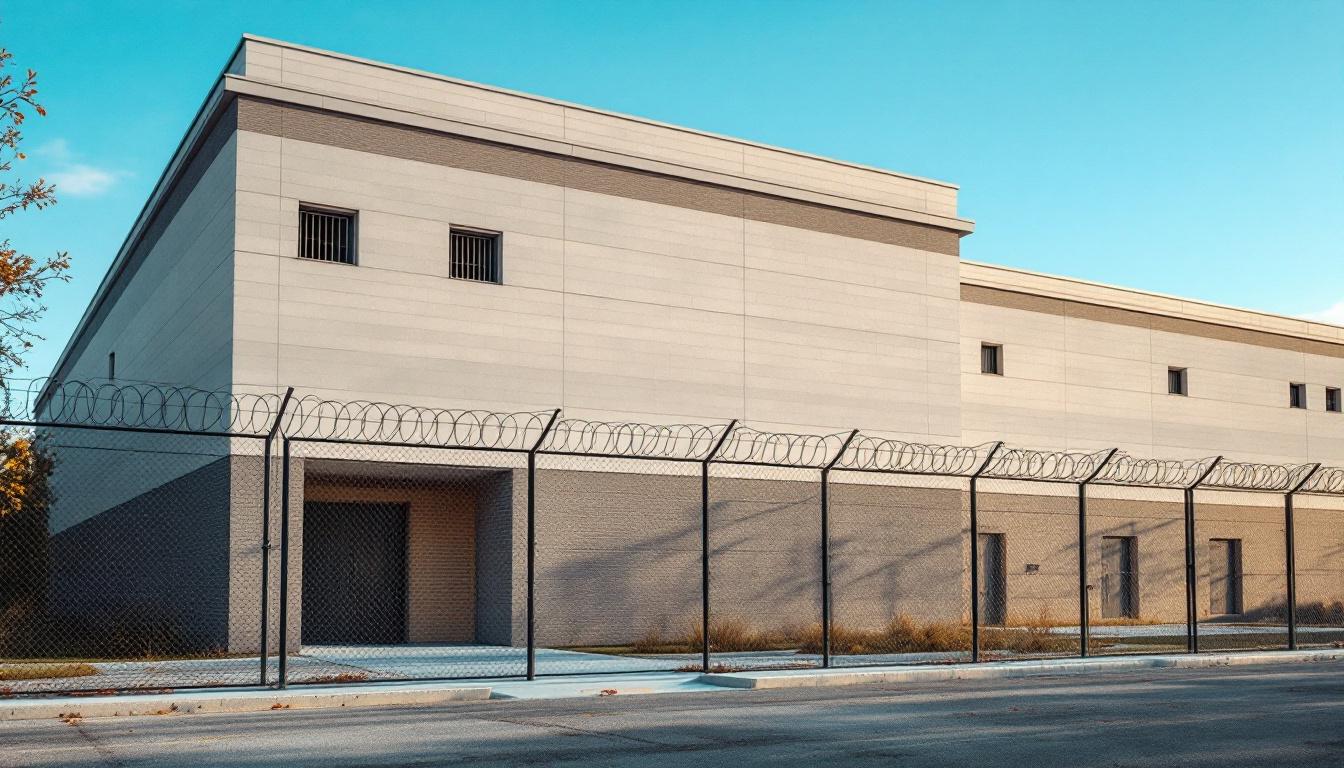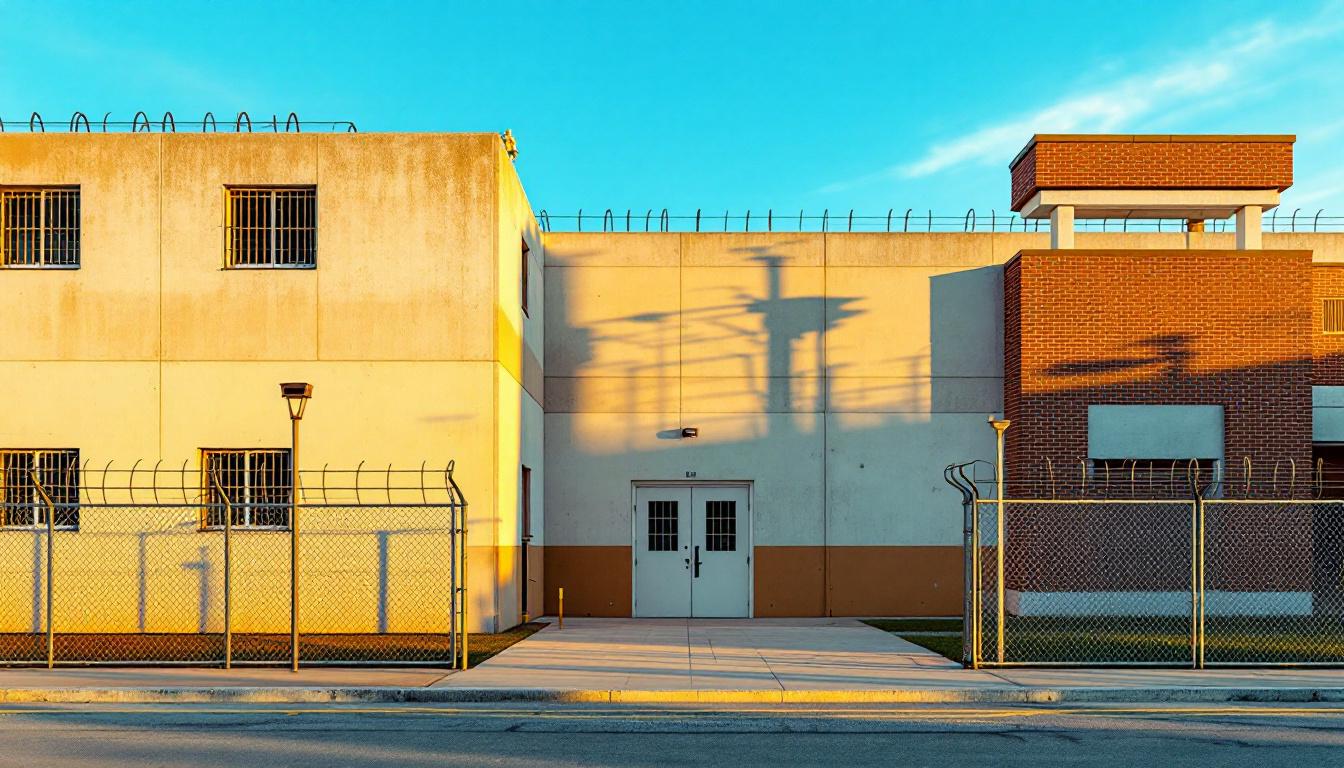
Quick Navigation
How to contact an inmate at Whitley County Detention Center
This comprehensive guide will walk you through how to connect with an inmate at Whitley County Detention Center. Follow the steps below to find an inmate and send letters and photos:
- Search for the inmate using our search tool below
- Create your account or log in to Penmate
- Write your message (up to 6,000 characters)
- Send instantly - inmates receive printed copies daily
Find an Inmate
Search for an inmate to start communicating today
Tip: You can search by first name, last name, or inmate ID number
To contact a person at Whitley County Detention Center start by searching for the person on the official facility website. Perform a search by following these steps:
- Step 1: Enter their first name and last name into the search form and click "Search"
- Step 2: Locate their inmate record
- Step 3: Write down their Inmate ID and any housing information provided
Important! Be sure to enter the person's full name. Nicknames should not be used.
How to Send Messages to Inmates

You can use your phone or computer to send emails, letters, and photos to an inmate. Messages are sent electronically to inmate tablets or kiosks at the facility. If you would like to send a message, start by searching for an inmate at Whitley County Detention Center.
Sending Photos and Postcards

A great way to send love and support to a loved one at Whitley County Detention Center is to send photos and postcards. It only takes a few minutes to send photos from your phone and it makes a huge difference. You can also mail postcards with words of support and inspiration, or design your own postcard for special moments like birthdays and holidays.
Important! Be sure not to send any explicit photos or they may not be approved by the facility. You can also use a photo printing app like Penmate to make sure your photos are printed at the correct size (4x6 or 3x5) and are mailed according to the rules and regulations of Whitley County Detention Center.
Frequently asked questions about Whitley County Detention Center
-
How long does it take to deliver a message?
If you're sending an email message your letter is usually delivered within 24-48 hours. For messages sent via mail you should expect delivery within 3-7 days. All messages will need be approved by Whitley County Detention Center.
-
How much does it cost to send a message to Whitley County Detention Center?
You can send a message free using your phone or mail a message via USPS for the price of a $0.60 stamp and envelope. You can also purchase credits or e-stamps from services starting at $1.99.
-
What services can I use to contact an inmate at Whitley County Detention Center?
Penmate
You can use Penmate to send letters and photos to an inmate from your phone. It's an easy way to stay in touch during your loved one's incarceration. Use the inmate locator to find an inmate's location and contact information, then you can send messages within a few minutes.
Securus messaging
Securus may be another option for communicating with an inmate at Whitley County Detention Center. You can create a friends and family account and purchase credits to send messages. All messages will be reviewed and must be approved by the facility.
JPay
Some county jails and state prisons may support sending messages with JPay. You must register an account with the system, find your loved one, and purchase stamps to send messages. For some locations you can also attach photos.
Smart Jail Mail
You may also check if Smart Jail Mail is available at Whitley County Detention Center. Smart Jail Mail is operated by Smart Communications and has contracted with some state and county jails. After purchasing credits, your messages and photos are sent to the facility, printed out, and then handed out to your loved one.
-
What is the mailing address of Whitley County Detention Center?
Mailing address:
Whitley County Detention Center
1439 KY-92
Williamsburg, KY 40769
Phone: (606) 549-6013Business hours:
- Monday: 8:00 AM – 4:00 PM
- Tuesday: 8:00 AM – 4:00 PM
- Wednesday: 8:00 AM – 4:00 PM
- Thursday: 8:00 AM – 4:00 PM
- Friday: 8:00 AM – 4:00 PM
- Saturday: Closed
- Sunday: Closed
-
What are the visiting hours at Whitley County Detention Center?
Visiting hours at Whitley County Detention Center vary by housing unit and security level. Generally, visits are scheduled on weekends and holidays, with some facilities offering weekday visits. Contact the facility directly at (606) 549-6013 or check their website for the current visiting schedule. Visits typically last 30-60 minutes and must be scheduled in advance.
-
What items are prohibited when sending mail to Whitley County Detention Center?
Prohibited items typically include: cash, personal checks, stamps, stickers, glitter, glue, tape, staples, paperclips, polaroid photos, musical or blank greeting cards, hardcover books, magazines with staples, and any items containing metal or electronics. Only send letters on plain white paper with blue or black ink. Photos must be printed on regular photo paper (no Polaroids). Always check with Whitley County Detention Center for their specific mail policies.
-
How do I send money to an inmate at Whitley County Detention Center?
You can send money to an inmate at Whitley County Detention Center through several methods: 1) Online using JPay, Access Corrections, or the facility's approved vendor, 2) Money orders mailed directly to the facility with the inmate's name and ID number, 3) Kiosks located in the facility lobby, or 4) Over the phone using a credit or debit card. Fees vary by method, typically ranging from $2.95 to $11.95 per transaction.
-
Can I schedule a video visit with an inmate at Whitley County Detention Center?
Many facilities now offer video visitation as an alternative to in-person visits. At Whitley County Detention Center, video visits may be available through services like Penmate, Securus Video Connect, GTL, or ICSolutions. Video visits typically cost $10-20 for 20-30 minutes and must be scheduled in advance. You'll need a computer or smartphone with a camera and reliable internet connection. Contact the facility for their specific video visitation policies and approved vendors.
-
What identification do I need to visit an inmate at Whitley County Detention Center?
All visitors must present valid government-issued photo identification such as a driver's license, state ID, passport, or military ID. Minors must be accompanied by a parent or legal guardian who can provide the minor's birth certificate. Some facilities require visitors to be on the inmate's approved visitation list, which may require a background check. Contact Whitley County Detention Center for specific ID requirements and visitor approval procedures.
-
How can I find out an inmate's release date?
To find an inmate's release date at Whitley County Detention Center, you can: 1) Use the online inmate search tool if available, 2) Call the facility's records department, 3) Contact the inmate's case manager or counselor, or 4) Have the inmate provide this information during a call or visit. For privacy reasons, some facilities only release this information to immediate family members.
Facility Overview
Contact Information
Whitley County Detention Center1439 KY-92
Williamsburg, KY 40769
Phone: (606) 549-6013
Official Website
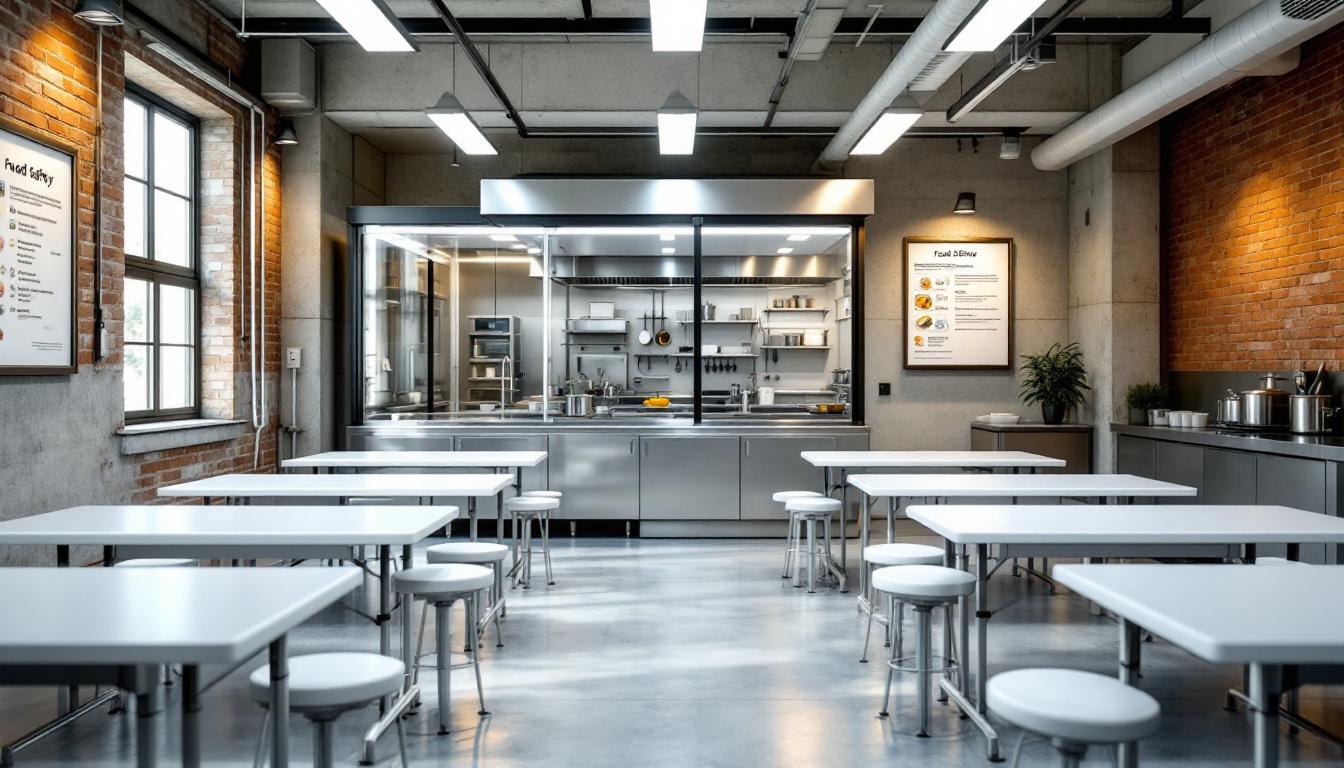
About Whitley County Detention Center
Addressing the complex needs of individuals within Kentucky's correctional system, Whitley Detention Center, KY operates as a secure facility dedicated to maintaining public safety while providing structured supervision for those in custody. Located in Williamsburg, this KY correctional facility serves the southeastern region of the state, positioned within the scenic Appalachian foothills where community safety and offender accountability intersect through institutional management.
The facility's approach to offender management typically emphasizes security protocols alongside structured daily routines that may include educational opportunities, work assignments, and behavioral programming. Those incarcerated services generally focus on maintaining institutional order while addressing individual needs through case management and reentry preparation. Staff members often work to balance the dual responsibilities of custody and care, implementing policies designed to support both immediate safety requirements and longer-term rehabilitation goals. The detention center's operations may include medical services, mental health support, and substance abuse programming, though specific offerings can vary based on available resources and individual assessments.
Within Williamsburg's broader community context, the facility generally maintains connections to local service providers and may coordinate with regional organizations to support transition planning for individuals preparing for release. The institution's role in Kentucky's correctional network typically involves housing various custody levels while working to reduce recidivism through evidence-based practices and community partnerships that support successful reintegration outcomes.
Programs & Services
Educational advancement and personal development opportunities serve as cornerstones for transformation at Whitley Detention Center, where those incarcerated may access comprehensive offerings designed to foster growth during their period of confinement. The facility's approach emphasizes structured learning environments that prioritize both security and meaningful skill acquisition, creating pathways for individuals to address underlying challenges while building foundations for future success. Through carefully coordinated programming, participants typically engage in activities that promote accountability, self-reflection, and practical knowledge development within a secure institutional setting.
Academic enrichment opportunities often include fundamental education services that may furnish literacy development, basic mathematics instruction, and preparation for high school equivalency examinations. Those incarcerated frequently participate in structured learning sessions that accommodate various educational backgrounds and learning styles. Also, vocational programs typically provide hands-on training in practical skills that may enhance employment prospects upon release, with offerings that often include maintenance, food service, and basic trade instruction delivered through supervised workshops and classroom instruction.
Therapeutic interventions and specialized support services address the complex needs of the incarcerated population through evidence-based approaches. Substance abuse treatment programs may furnish group counseling sessions, educational components about addiction recovery, and relapse prevention strategies facilitated by qualified personnel. Also, comprehensive support offerings typically include stress management workshops that teach coping mechanisms, victim awareness programming that promotes understanding of crime's impact, and life coaching services that may assist participants in developing goal-setting abilities and decision-making skills essential for successful community reintegration.
Daily Life & Visitation
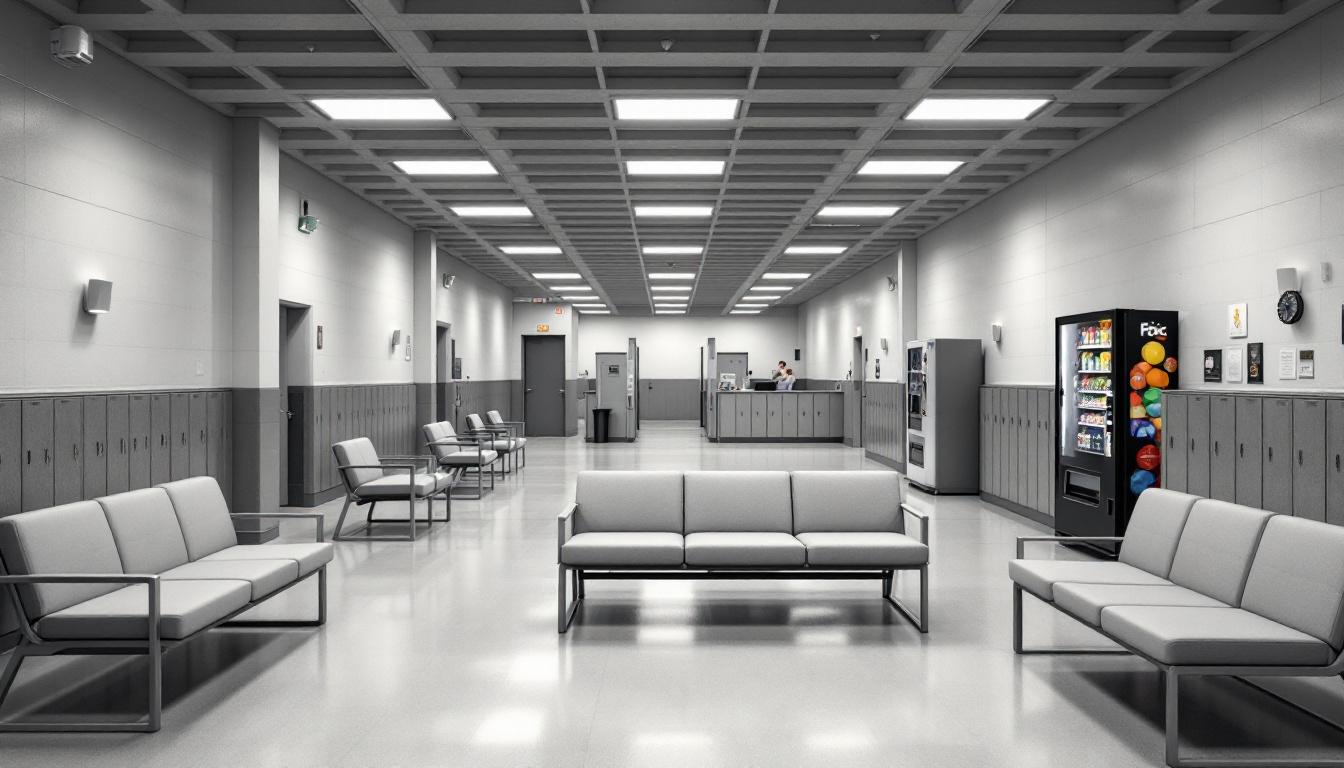
The bonds between those incarcerated and their families remain a central focus of daily life, as residents work to maintain meaningful connections despite physical separation. Today's structured environment at the facility consistently revolves around scheduled activities that furnish opportunities for personal growth while preserving essential family ties. Those incarcerated typically begin their mornings with count procedures and meal service, followed by work assignments or programming that may include educational classes, vocational training, or counseling sessions designed to support successful reintegration into their communities.
Living accommodations generally consist of dormitory-style housing units where residents share common areas and develop supportive relationships with their peers. The dining arrangements typically involve scheduled meal times in communal areas, providing natural opportunities for social interaction and community building among those incarcerated. Also, recreational activities often include access to outdoor exercise areas, indoor fitness equipment, and organized sports programs that help residents maintain physical wellness while fostering teamwork and positive social connections.
However, perhaps most importantly, the facility usually offers various communication options that allow those incarcerated to stay connected with their support networks outside. Visitation policies typically accommodate scheduled visits from approved family members and friends, while telephone access and correspondence privileges generally enable regular contact with loved ones. Work assignments within the facility often provide structure and purpose, with residents potentially participating in maintenance duties, food service, or other institutional operations that contribute to the daily functioning of the community while developing valuable skills for their eventual return home.
Ready to Connect?
Start communicating with your loved one today
Search for an Inmate
